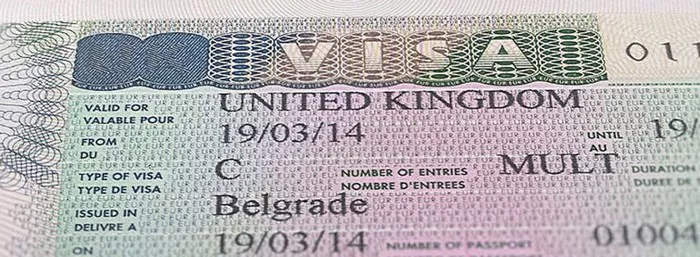Securing a visa to the United Kingdom involves fulfilling various criteria, including financial obligations tailored to the specific visa type. Understanding these financial requirements is crucial for a successful application process. This article delineates the nuances of bank balance prerequisites for different UK visa categories, offering clarity on minimum amounts, additional considerations, maintenance timeframes, required supporting documents, and dispelling common misconceptions.
1. Different Visa Types and Their Financial Requirements:
The financial prerequisites for UK visas vary depending on the nature of the visa being pursued. Broadly categorized visas include tourist visas, student visas, and work visas, each with distinct financial thresholds.
Tourist Visa: Visitors seeking to explore the UK for leisure or to visit family and friends typically need to demonstrate they can support themselves financially during their stay. This might involve proving access to a certain amount of funds for accommodation, sustenance, and other expenses.
Student Visa: Individuals aspiring to study in the UK are required to exhibit their ability to cover tuition fees and living costs for the duration of their course. This entails maintaining a specific bank balance or possessing other financial resources.
Work Visa: Professionals intending to work in the UK must demonstrate they can support themselves financially without recourse to public funds. This often necessitates evidence of a stable income or adequate savings to sustain living expenses.
2. Minimum Bank Balance Amounts:
The UK government mandates minimum bank balance amounts for each visa type, which are periodically revised. As of the latest updates from official UK government sources:
Tourist Visa: Applicants are typically advised to have access to around £1,000 to £1,500 per month to cover their expenses during their stay in the UK.
Student Visa: The financial requirement for student visas depends on the location of study within the UK and whether the institution is situated in London or outside. As a general guideline, students outside London are required to have approximately £1,023 per month for living costs, while those studying in London must demonstrate access to around £1,334 per month.
Work Visa: The financial criteria for work visas can vary based on the specific visa category and individual circumstances. In general, applicants are expected to have sufficient funds to support themselves without relying on public funds.
3. Additional Financial Considerations:
In addition to the minimum bank balance, applicants may need to provide supplementary financial documentation to bolster their visa applications. These may include:
Proof of Income: Demonstrating a steady income through payslips or employment contracts can strengthen an applicant’s financial standing.
Sponsor’s Financial Documents: If being sponsored by a family member or organization, evidence of the sponsor’s financial stability may be required to assure the applicant’s financial support.
Evidence of Financial Stability: Applicants may need to furnish additional evidence, such as investments, properties, or savings, to substantiate their financial stability and ability to meet ongoing expenses.
4. Timeframe for Maintaining the Balance:
The duration for which the required bank balance must be maintained varies depending on the visa type and individual circumstances. In general:
Tourist Visa: The balance should be maintained for the duration of the stay in the UK.
Student Visa: The balance should be accessible for a certain period, typically covering the first year of study or the duration of the course.
Work Visa: The financial stability should be demonstrable throughout the employment period in the UK.
5. Supporting Documents:
To fulfill the financial requirements, applicants need to provide relevant supporting documents, including but not limited to:
Bank statements demonstrating the required balance over a specified period.
Sponsor letters affirming financial support, if applicable.
Payslips or employment contracts to verify income, if employed.
Conclusion
In conclusion, navigating the financial requirements for UK visas necessitates a thorough understanding of the specific criteria for each visa type. By adhering to the minimum bank balance amounts, providing requisite supporting documents, and dispelling common misconceptions, applicants can enhance their prospects of a successful visa application and embark on their journey to the United Kingdom with confidence.
FAQs
Is 3 months bank statement enough for UK visa?
Yes, typically, providing 3 months of bank statements is sufficient for a UK visa application. However, it’s essential to ensure that the statements reflect your financial stability and meet the specific requirements outlined by the UK visa application guidelines.
How much money do you need to apply for a UK visa?
The amount of money required to apply for a UK visa varies depending on the type of visa and your individual circumstances. Generally, you need to demonstrate that you have enough funds to cover your intended stay in the UK, including accommodation, living expenses, and any other relevant costs. The specific financial requirements are outlined in the UK visa application guidelines for each visa category.
What is the 28-day rule UK visa?
The 28-day rule, also known as the “28-day period,” refers to the requirement that certain types of UK visa applicants must demonstrate they have had the required amount of money in their bank account for at least 28 consecutive days before submitting their visa application. This rule ensures that applicants can sustain themselves financially during their stay in the UK. It’s crucial to adhere to this rule to avoid any complications or delays in the visa application process.
Related topics:




















